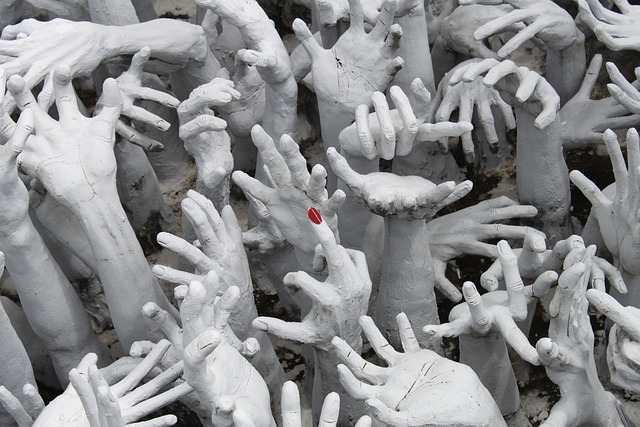【Philosophy】African philosophy cannot be a thing
This essay unpacks several arguments about the metaphilosophic nature of African philosophy and charts a way through the problems these arguments enco... [more]
This essay unpacks several arguments about the metaphilosophic nature of African philosophy and charts a way through the problems these arguments enco... [more]
I use the concept of epistemic injustice to think through the practice and methodology of comparative, or fusion, philosophy. I make two related claim... [more]
This article reports on the development and teaching of compulsory courses on ethics and engineering at Delft University of Technology (DUT). Attention is paid to the teaching goals, the educational setup and methods, the contents of the courses, involvem
This paper challenges arguments that systematic patterns of intelligent behavior license the claim that representations must play a role in the cognitive system analogous to that played by syntactical structures in a computer program. In place of traditio
It is suggested that the Harm Principle can be viewed as the moral basis on which genetically modified (GM) food is currently regulated. It is then argued (a) that the concept of harm cannot be specified in such a manner as to render the Harm Principle a
This paper argues for a pseudo-cleft analysis of so-called clefts in Malagasy. Evidence is presented that the clefted element is in fact the matrix (copular) predicate and that the pre-suppositional clause is a headless relative in subject position. The p

In recent years, there has been a great deal of philosophical discussion about the alleged moral right to die. If there is such a moral right, then it would seem to imply a moral duty on others to not interfere with the exercise of the right. And this mig
Persons are thought to have a special kind of value, often called dignity, which, according to Kant, makes them both infinitely valuable and irreplaceably valuable. The author aims to identify what makes a person a person in a way that can explain both as
In response to my How to Make Naturalism Safe for Supernaturalism: An Evaluation of Willem Drees's Supernaturalistic Naturalism (Rottschaefer 2001), Willem Drees maintains that I have misunderstood his purpose and views and have failed to make the case a
Naturalism is often considered to be antithetical to theology and genuine religion. However, in a series of recent books and articles, Willem Drees has proposed a scientifically informed naturalistic account of religion, which, he contends, is not only co
Even if animal liberation were to be adopted, would rights for animals be redundant - or even deleterious? Such an objection, most prominently voiced by L. W. Sumner and Paul W. Taylor, is misguided, risks an anthropocentric and anthropomorphic conception

The argument that a holistic analysis of Dewey's work, drawing not only on the major portions subject to extensive commentary (such as Experience and Nature) but also on his aesthetics, provides fuel for feminist theorizing is sustained by advertence to
Paul Tillich noted the emergence of science by demythologization from its original unity with religion in antiquity. Demythologization can lead to conflict with accepted paradigms and therefore requires the courage to create, as exemplified by Galileo. Ti
Human morality may be thought of as a negative feedback control system in which moral rules are reference values, and moral disapproval, blame, and punishment are forms of negative feedback given for violations of the moral rules. In such a system, if mor
The issue of regularly feeding low levels of antibiotics to farm animals in order to increase productivity is often portrayed as a dilemma. On the one hand, such antibiotic use is depicted as a necessary condition for producing cheap and plentiful food, s
Why did Levinas choose Isaiah 45:7 (I make peace and create evil: I the Lord shall do all that) as a superscription of his essay on evil? This article explores the role of evil in Levinas' religious ethics. The author discusses the structure of evil as r
This article reports on a method of group mentoring to strengthen responsible research conduct. A key feature of this approach is joint exploration of the issues by trainees and their faculty research supervisors. These interactions not only help particip